#celebrating black history month
Text
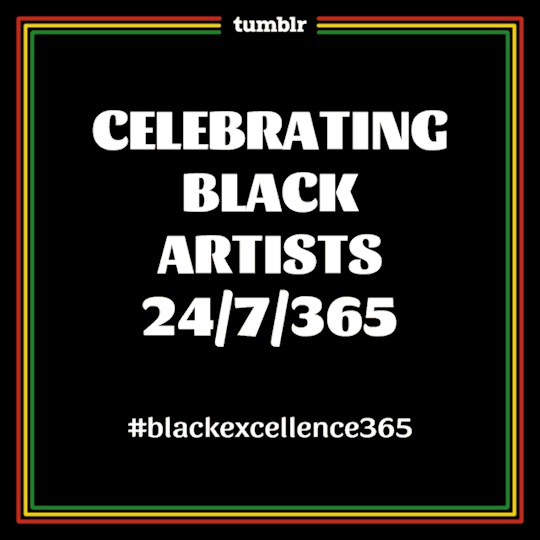
Art by @lehuckbadu
African Hair Threading
Hair Threading has been part of the Black hair scene for many generations. It consists of wrapping sectioned hair in thread. This method of wrapping the hair in thread strengthens the hair without excessive manipulation, which is beneficial for your strands. Not only does the style strengthen the hair, but it also promotes growth.
The style comes from Sub-Saharan African countries and grew its popularity in West Africa, particularly, South Nigeria. Learn more here
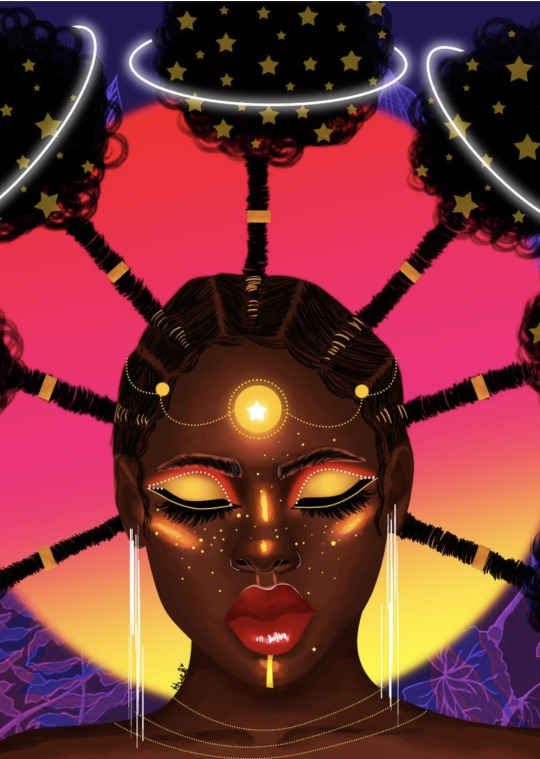
Art by Izzakko via @blacklacerabbit
Bantu Knots and Hi-Top Fades
The Zulu people of southern Africa originated Bantu knots, a hairstyle where the hair is sectioned off, twisted, and wrapped in such a way that the hair stacks upon itself to form a spiraled knot (Source). Learn the history of Bantu Knots
The hi-top fade or flattop originated in the U.S. military around the ‘40s and ‘50s. By the mid-eighties, Black barbers began to reimagine the hairstyle, and due to its resemblance to Queen Nefertiti’s Empress headpiece, some speculated the hairstyle's origin. The hairstyle grew as a trend when worn by the like of Grace Jones, Doug E. Fresh, and Salt-N-Peppa.
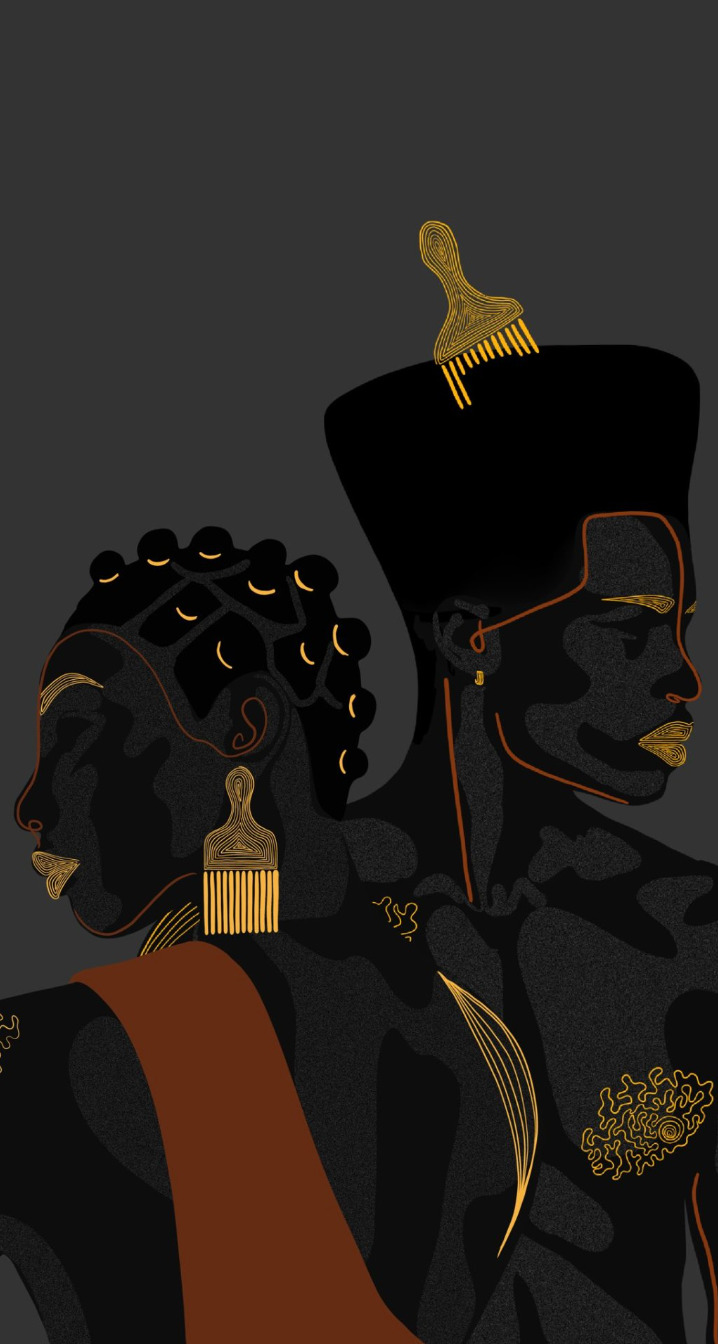
Art by LaQuecya Allen via @nappy-by-nature
Afro
As far as hairstyles go, there's nothing Blacker than the Afro. In the 1960s, after decades of subjecting themselves to European beauty standards, Black folks decided to take back their hair. This newfound self-acceptance was widely known as the Black Is Beautiful movement, which sprang from the Black Power movement. The 'fro was rocked by Angela Davis, Huey P. Newton, and Jesse Jackson while fighting oppression; the hairstyle quickly emerged as a symbol of Black beauty, liberation, and pride.

Remember: tag your Black hair art with #BlackExcellence365 for a chance to be featured!
And keep your eyes out for next month's theme... 👀
#blackexcellence365#blackjoyisblackexcellence#blackjoy#blackexcellence#black excellnece#black excellence 365#all black everything#celebrating black history month#celebrating black culture#black culture#black lives matter#today in black excellence#black artist on tumblr#blktumblr#black hair#black tumblr
6K notes
·
View notes
Photo


JACOB ANDERSON • Anne Rice's Interview with the Vampire
2022 • Horror • S01.E01 • dir. Alan Taylor
#celebrating black history month#jacob anderson#gorgeous#beautiful#interview with the vampire#iwtv#iwtv 2022#horroredit#louis de pointe du lac#perioddramaedit#iwtvedit#iwtv amc#loustat#the vampire chronicles#anne rice#horror#tvedit#tvgifs#male beauty#beautiful men
813 notes
·
View notes
Text
Celebrating Black History Month: Chimamanda Ngozi Adichie
On a mission … celebrating Black History Month with amazing and inspirational Black Women for the rest of the month and continuing into March to celebrate not only inspirational Black Women but International Woman’s Day.
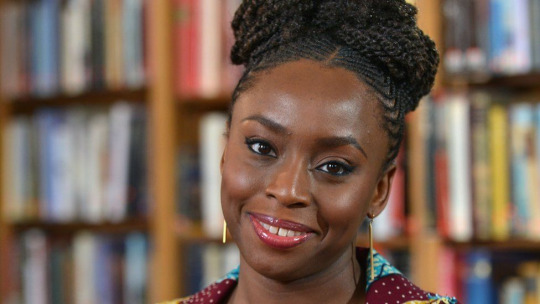
Born September 15, 1977 (45 years old) Enugu Nigeria
Chimamanda Ngozi Adichie grew up on the campus of the University of Nigeria, Nsukka, her father was a professor there and her mother was the first female Registrar there. she graduated from Eastern Connecticut State University with a degree in Communication and Political Science. She also has a Master’s Degree in Creative Writing from Johns Hopkins University and a Master of Arts degree in African History from Yale University.
She has written several books and has appeared on TedTalks
Chimamanda Ngozi Adichie: The danger of a single story | TED Talk
She is best known for her themes of politics, culture, race and gender. Her novel, short stories, and plays have all received both public and critical acclaim. She warns that if we hear only a single story about another person or country, we risk a critical misunderstanding.
R. J. Davies
A Riveting Jacked-In Dreamy Mind-Bender
RJ Davies - Science Fiction Author, Maddox Files, Novels
#R. J. Davies#R. J. Davies Author#Rhonda Davies#Rhonda Davies Author#Rhonda Joan Davies#mystery author#science fiction author#author of Maddox Files#Celebrating Black History Month#BHM2023#Chimamanda Ngozi Adichie#International Women's Day
34 notes
·
View notes
Text

#black history month#black excellence#african american history#black heritage#celebrating black history#black culture#black leaders#civil rights#black achievements#black pride#historical legends#black lives matter#black empowerment#black history 365#trailblazers#black history facts#our history#black history celebration#empowering black voices.#021224
418 notes
·
View notes
Text
Happy Juneteeth
Juneteenth, a testament to resilience and might, A beacon of freedom, shining ever so bright. We remember the past, embrace the present with glee, For in unity we find strength, forever we'll be free.
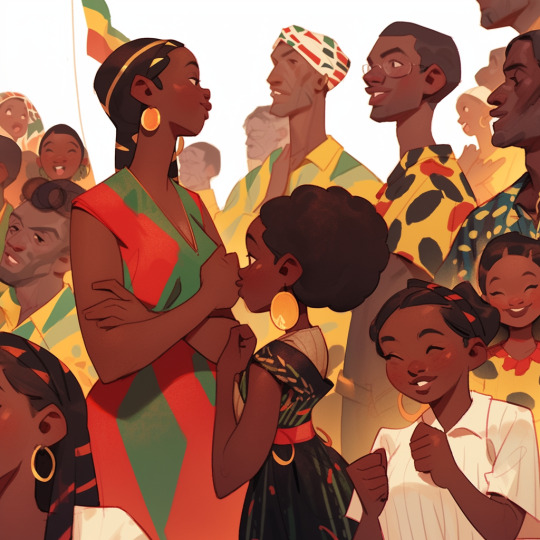

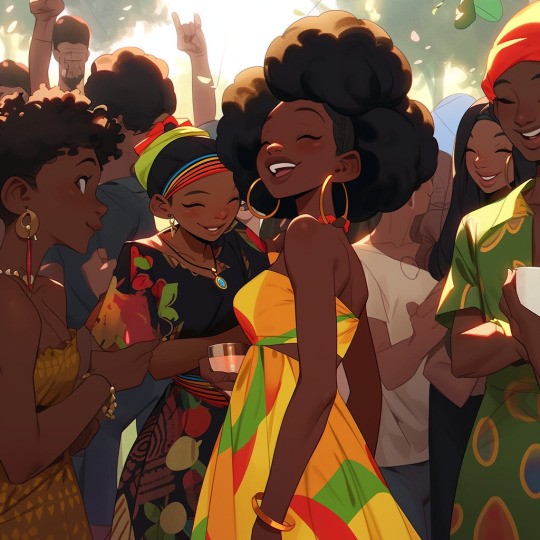
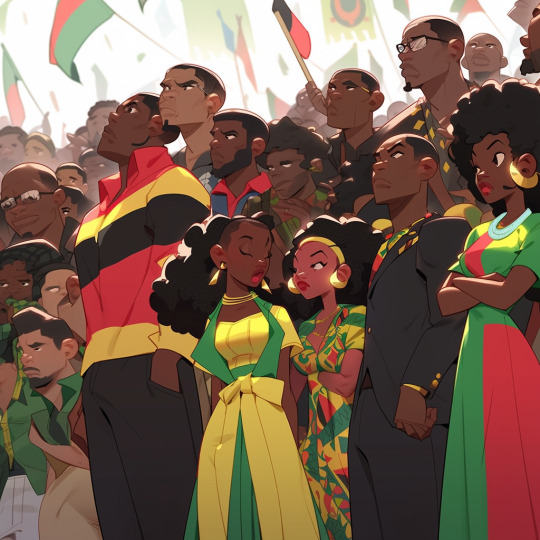
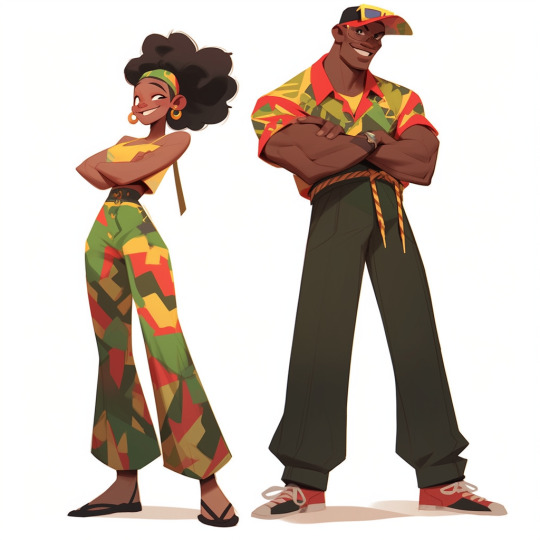
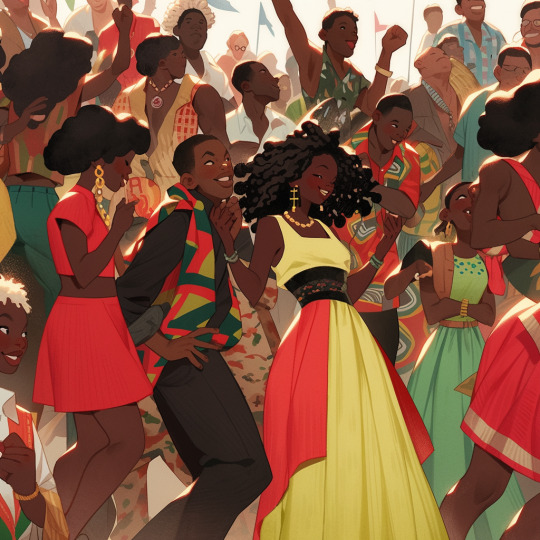

#juneteenth celebration#juneteenth#black excellence#black culture#black tumblr#black history#black lives matter#black excellence 365#celebration#illustration#digital illustration#manga#aestheitcs#art#black art#black love#Freedom#Black history#Blm#Black history month#Mlk#fathers day#love#artists on tumblr
927 notes
·
View notes
Text
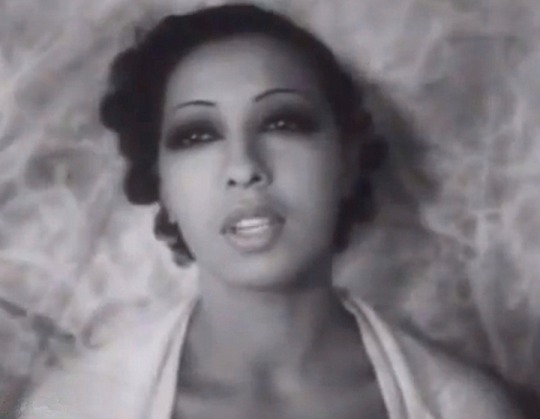
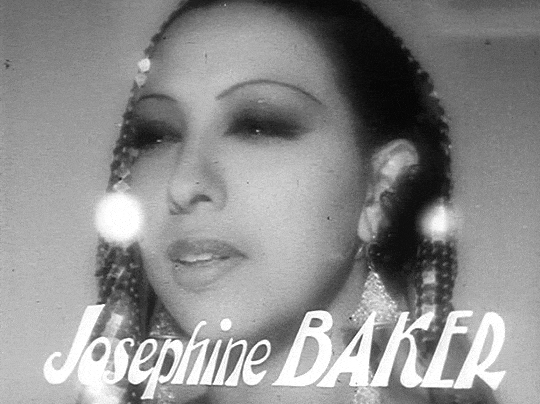
Josephine Baker (in Princess Tam Tam, 1935)
#Josephine Baker#movies#music#photography#celebrities#history#black history#black history month#Hollywood#aesthetic#black and white#vintage#film#cinema#retro#gif#celebrity#old Hollywood#beauty-funny-trippy#song#Dream Ship#Princess Tam Tam#1930s#1930s movies
200 notes
·
View notes
Text
Me watching the LGBT community who almost never rarely gives black women and girls, asexuals, or aromantics genuine respect, pretend we’re all friends and have always treated us right the minute it’s June 1st and want to use black women(mainly darkskinned) and girls as their little poster girl:
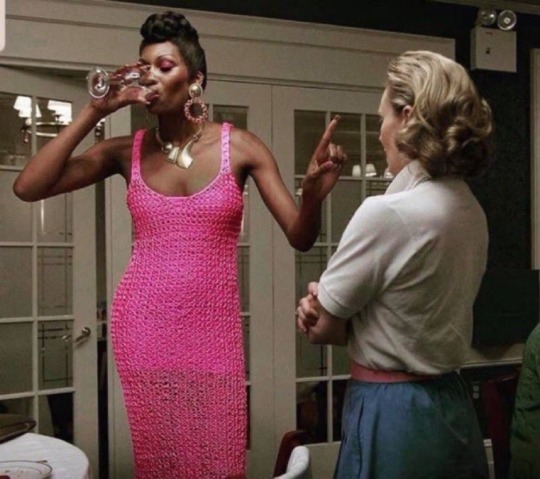
#asexual#aromantic#It’s always coming from the non black people(including other racial minorities) too#and the stuff coming out of the lgbt community towards black women and girls has gotten real nasty#i have seen numerous people(although they’re mainly black) say that black people are inherently queer because we’re unnatural and strange#in the eyes of white supremacy and white people#like are you ok in the head??? why do you want to say that black people are inherently strange and we defy every social standard#as of our existence is a social statement#I personally think the worst thing I’ve personally heard(from yet another black person)#was that black women and girls would get seen as men or trans women because our hair is nappy#what does our natural hair have to do with getting seen as men or trans women??#and the white lgbt people just applauded them and hearted their tweet#it annoys me how for some weird reason political and social movements will mainly use black women especially darker black women as rep#and It’s almost always by a non black person#like why don’t you use a girl or woman from your own race in your political and social justice artwork#oh wait that’s right#because in general the lgbt community views black women and girls as magical negras who will be their ride or die sista soulja#who will mule and fight for them no matter how badly they outright insult us or sneakily talk badly about us#pride month is basically another black history month when it comes to how everyone reacts to it#every reaction to it is superficial and they’re only celebrating us because they feel like they had to or wanted social points#had it been any other month they would’ve been focusing on the group that they belong to
193 notes
·
View notes
Text
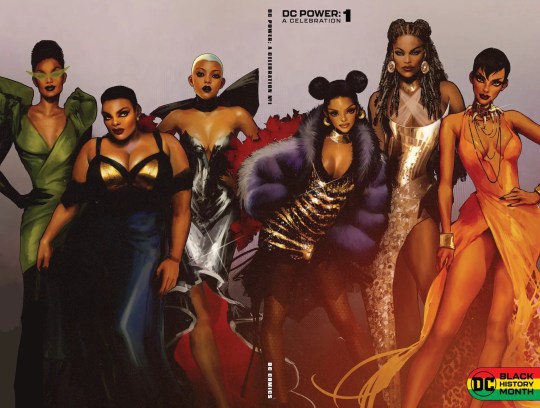
DC Power: A Celebration (2023) #1 variant cover by Sozomaika
#dc comics#variant cover#justice league#wonder woman#nubia of themyscira#mari mccabe#bumblebee#karen beecher#steel#natasha irons#green lantern#jo mullein#amanda waller#DC power a celebration#DC Power: a Celebration#black history month#fashion#art#sozomaika
317 notes
·
View notes
Text
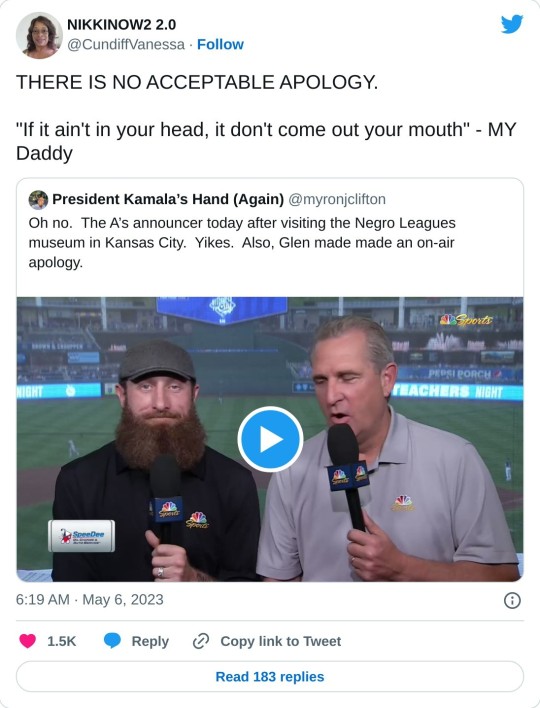
We are tired of apologies. We don't want apologies. They don't mean it. It trivializes the issue. People need to stop thinking "oops my bad" makes everything all better. It doesn't.
That’s like if an unfaithful man/woman says yes I have cheated but I still want you and I love you NO THE HECK YOU DONT BECAUSE PEOPLE WHO REALLY LOVE EACH OTHER DO NOT DO ANYTHING TO HURT THEM INTENTIONALLY!
A racist apology is like a gop thought and prayers after a school shooting: to hell with that , shove it, fquck that and you!
WE WANT PEOPLE TO STOP BEING BLATANT RACISTS!
#Youtube#blackexcellence365#blackjoyisblackexcellence#blackjoy#blackexcellence#black excellence#black excellence 365#black joy is black excellence#black Joy#black history month#all black everything#celebrating black history#black history matters#black history#black culture#black lives matter#today in black excellence#black tumblr#blktumblr#melanin
184 notes
·
View notes
Text
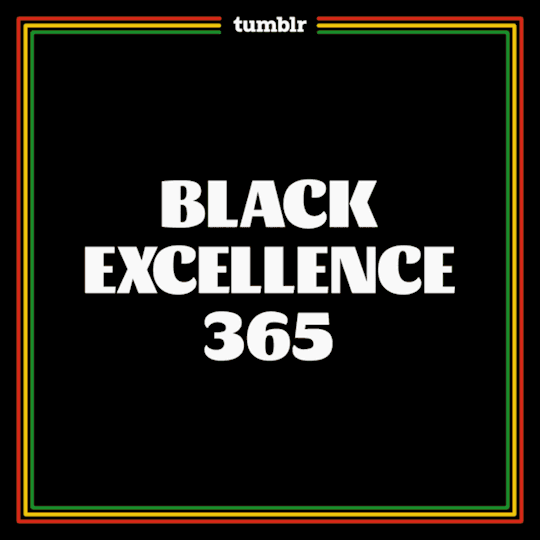
February is here, and that can only mean one thing: it’s BlackExcellence365, back for our fifth year right here on Tumblr. This is a celebration of all things Black culture and history, and it’s not just for February—this is a community celebration every day of every week of the year. This year we will be highlighting Black artists. So join us each month, as we will be exploring Black creativity with a series of themes such as history, power and activism, and PRIDE.
Introducing February’s theme: Black History
If you are a Black artist or creative, join in, follow, and share your art related to Black History using the tag #BlackExcellence365. Let’s lean into our creativity and explore Black Excellence through art. Selected posts will be featured, gifted free blazes🔥, or given a spot on radar.
Keep your eyes peeled each month for your chance to showcase your expressions of Black Excellence. You will be able to do so as we explore artists here and across Tumblr over on Meet The Artist, Artist Picks, and Artist Alley— it doesn’t matter whatever your discipline: music, writing, photography, dance, fashion, film, and anything in between.
Welcome back to #BlackExcellence365 ✊🏿✊🏾✊🏽!
#blackexcellence365#blackjoyisblackexcellence#blackjoy#blackexcellence#black excellence#black excellence 365#black history month#all black everything#celebrating black history#black history matters#black history#black culture#black lives matter#today in black excellence#black tumblr#blktumblr
4K notes
·
View notes
Text
I usually avoid posting my own opinions, but I've seen a few posts like the one in the screenshot below creep across my feed lately and they're bugging me too much to keep my mouth shut. I censored the identity of this particular example because I don't want to start a Tumblr war or make them feel like I'm singling them out or attacking them.

I don't feel good about celebrating black history month through a character who was both written and performed by a white man. I know this is all just low-stakes fandom headcanon stuff and I'm not trying to control what other people do, but something feels not-quite-right about taking a character played by a white VA and deciding (on his behalf might I add) that he's black and using him as your example of black representation in the audio rp fandom.
There are black VAs out there, they can represent themselves. I really think it's disingenuous to sort through a cast of characters all played by the same white guy and assign POC races to them in order to give a singular white guy's one-man show racial diversity, then celebrate said "diversity".
Sorry, I'm not trying to be a Tumblr drama queen. If you're the person from the screenshot (or have posted something similar), I don't think you meant any harm. Your post probably wasn't meant to be that deep and not the worst thing in the world, but I don't know why you would pick a random character written and performed by a white guy and cheer "Rahhh, let's celebrate black history month with this!". If it really matters to you, you can celebrate a black VA, or a canonically black character, or even just a listener character that you/others HC as black. You can celebrate fan artists and writers who are black.
Why use characters played by Redacted for this? I promise I'm not trying to start a fight, or accuse people who've made posts like this of being racist or cancel anyone. I don't think they mean badly. But I see this a lot even outside of the context of BHM. It's almost always with characters written/performed by Redacted and it's always made me a little uneasy, especially with the amount of enthusiasm people throw onto the race they decided to HC for this one white man's characters.
If you disagree with me, I'm open to hearing you out. I don't want to try and dictate what people can/can't do in a fandom space or send a mob after anyone, but something feels off to me about using Redacted characters to celebrate BHM.
-Ringmaster
#I hope I don't accidentally start a tumblr war and regret this#but POC don't need to be represented by white actors#I'd rather celebrate actual black characters and black creators#just accept that you aren't going to get diverse racial representation from a series where the same white guy is playing absolutely everyon#redacted audio#black history month#BHM#not a callout post#please don't witch-hunt anyone#but seriously there are black VAs out there if black representation is important to you#some are very under-rated and could actually use a shoutout right now#there are also non-black VAs who collab with black people and have actual diverse representation in their casts#also how do you hear Erik's voice and think “that's my black king right there”#redacted fandom#audio roleplay#boyfriend asmr
30 notes
·
View notes
Text
Celebrating Black History Month: Mary Jackson
On a mission … celebrating Black History Month with amazing and inspirational Black Women for the rest of the month and continuing into March to celebrate not only inspirational Black Women but International Woman’s Day

Born April 9, 1921 in Hampton, Virginia and died February 11, 2005 (at age 83). In 1958, she was the first African American female engineer to work at NASA, she was a mathematician and aerospace engineer.
She was known as a “Human Computer” at NACA with her math and science skills. She served a vital role in the development of the space programs as well as helped other women and minorities advance their careers.
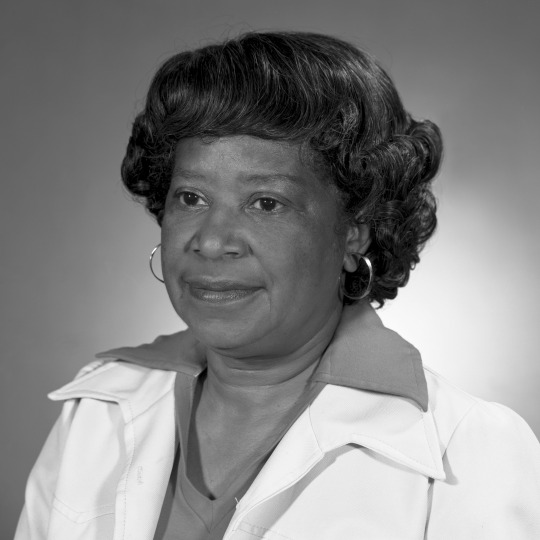
Mary Jackson also served for more than 30 years as a Girl Scout leader, in the 1970s she helped African American children in her community and created a miniature wind tunnel for testing airplanes. She worked as an aerospace engineer for 20+ year, much of her work centered on the airflow around aircraft. She was denied management level positions and in 1979 she left engineering and took a demotion to become a manager of the women’s program at NASA where she sought to improve the opportunities for all women in the organization.
R. J. Davies
A Riveting Jacked-In Dreamy Mind-Bender
RJ Davies - Science Fiction Author, Maddox Files, Novels
#R. J. Davies#R. J. Davies author#Rhonda Davies#Rhonda Davies author#Rhonda Joan Davies#mystery author#science fiction author#author of Maddox Files#Celebrating Black History Month#BHM2023#Mary Jackson#International Women's Day 2023#Celebrating International Women's Day
46 notes
·
View notes
Photo
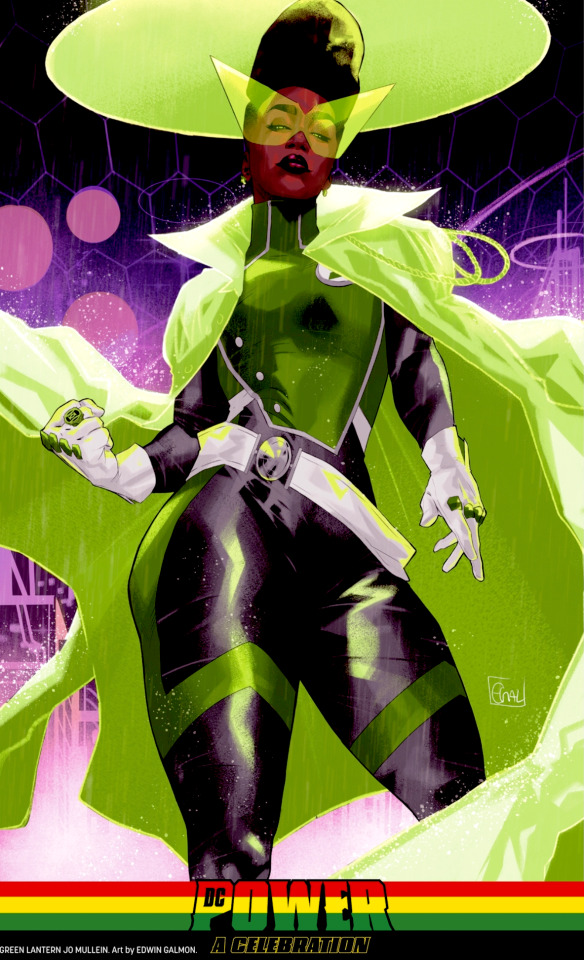
Lantern Mullein by Edwin Galmon
#jo mullein#green lantern#dc comics#dc power a celebration#comic book art#far sector#dc#black history month#she should've gotten a new story vs a reprint
321 notes
·
View notes
Text
logging out of here for a bit! I'm taking a step back to recharge and refocus on myself. thank you for all the love, especially this week, it means the world to me. 💗
take care and don't forget to be kind to yourselves. until next time ✌️
#nikki's nonsense#semi-hiatus/break? idk what to call these anymore lol#happy Lunar New Year to those who celebrate#Happy Black History month#and a happy early Valentine's Day too!!#and don't forget: from the river to the sea Palestine will be free#sending you all so much love to last the rest of this month!#love y'all#feel free to leave me something nice in my inbox or DMs! I'll try to respond whenever I can
31 notes
·
View notes
Text
February is Black History Month, a time dedicated to honoring and celebrating the essential contributions of Black people in the story of America. National and local events and online celebrations will take place throughout the month to focus attention on Black people's achievements and history.
Since 1976, the US has marked the contributions of Black people and celebrated the history and culture of the Black experience in America every February. Read on to learn more about Black History Month and the ways in which you can participate.
The story of Black History Month
Born as a sharecropper in 1875, Carter G. Woodson went on to become a teacher and the second African American to earn a doctorate from Harvard. He founded the Association for the Study of African American Life and History in 1915 and eventually became known as the "father of Black history."
On Feb. 7, 1926, Woodson announced the creation of "Negro History Week" to encourage and expand the teaching of Black history in schools. He selected February because the month marks the birthday of the two most famous abolitionists of the time -- Frederick Douglass and Abraham Lincoln. Feb. 1 is also National Freedom Day, a celebration of the ratification of the 13th Amendment, which abolished slavery in the US.
By the 1940s, schools in Woodson's home state of West Virginia had begun expanding the celebration to a month, and by the 1960s, demands for proper Black history education spread across the country. Kent State's Black United Students proposed the idea of a Black History month in 1969 and celebrated the first event in February 1970. President Gerald Ford officially recognized Black History Month in 1976 during the US bicentennial.
The excellent history site BlackPast has a full biography of Carter Woodson and the origins of Black History Month.
Visit a Black or African American history museum
Almost every state in the US has a Black history museum or African American heritage site. The country's first and oldest is the Hampton University Museum in Hampton, Virginia. Like many other museums, it offers a virtual tour and online exhibits.
One of the most famous of these museums is the National Civil Rights Museum at the Lorraine Motel in Memphis, Tennessee. The museum, which is located steps away from where Martin Luther King Jr. was assassinated, allows you to sit with Rosa Parks on the bus that inspired the Montgomery Bus Boycott of 1955, among many other powerful exhibits.
African-American heritage sites include historic parks and other significant locations and monuments in Black history. Some of the most popular include Little Rock Central High School in Arkansas, the epicenter of US school desegregation. You could also consider visiting the Martin Luther King, Jr. National Historical Park in Atlanta.
If there's no museum or heritage site near you, keep an eye out for the Black History Mobile Museum, which traverses the country all month and through the summer. Throughout February you can find the mobile museum in several states, starting in New Jersey on Feb. 1 and making its way through 12 other states. See the full list of 2023 tour dates here.
Learn about Black music history by listening online
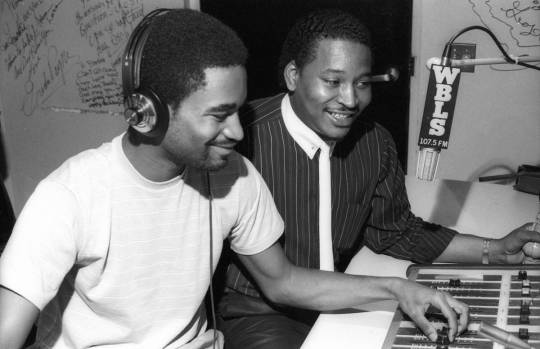
Marley Marl and Mr. Magic were superstar rap DJs for WBLS FM in the 1980s. Michael Ochs Archives/Getty Images
From spirituals and blues to the rise of jazz, R&B and hip hop, Black music has been entwined with American culture for centuries.
There are lots of ways to learn about and experience the power of Black American music online. One of the most extensive and free resources is the Black Music History Library, created by Jenzia Burgos. The compendium includes an array of Black music sources, with links to music samples, full recordings and interviews, as well as books and articles.
Another remarkable Black music website is the #312 Soul project. Originally launched as a month-long series on Chicago's Black music from 1955 to 1990, the site publishes original stories from Chicago residents about their personal experiences creating and enjoying Black music.
For snapshots of Black music between 1982 and 1999, check out the Hip Hop Radio Archive, a collection of radio show recordings from commercial, college and independent hip-hop stations. Of particular note are classic radio shows from New York City's WBLS, featuring Rap Attack with Marley Marl and Mr. Magic.
Online streaming music services also curate collections for Black History Month -- Spotify has an extensive collection of Black music in its Black History is Now collection. Tidal and Amazon Music also include special Black music collections on their services.
Support Black-owned businesses and restaurants
Becoming a customer of local Black businesses helps protect livelihoods and supports Black entrepreneurs.
If you aren't sure which businesses in your area are owned and operated by your Black neighbors, several resources can help. Start off by learning how to find Black-owned restaurants where you live.
Several directories have now been created to highlight and promote Black businesses. Official Black Wall Street is one of the original services that list businesses owned by members of the Black community.
Support Black Owned uses a simple search tool to help you find Black businesses, Shop Black Owned is an open-source tool operating in eight US cities, and EatOkra specifically helps people find Black-owned restaurants. Also, We Buy Black offers an online marketplace for Black businesses.
The online boutique Etsy highlights Black-owned vendors on its website -- many of these shop owners are women selling jewelry and unique art pieces. And if you're searching for make-up or hair products, check CNET's own list of Black-owned beauty brands.
Donate to Black organizations and charities
Donating money to a charity is an important way to support a movement or group, and your monetary contribution can help fund programs and pay for legal costs and salaries that keep an organization afloat. Your employer may agree to match employee donations, which would double the size of your contribution -- ask your HR department.
Nonprofit organizations require reliable, year-round funding to do their work. Rather than a lump sum, consider a monthly donation. Even if the amount seems small, your donation combined with others can help provide a steady stream of funds that allows programs to operate.
Here are some non-profit organizations advancing Black rights and equal justice and supporting Black youth:
Black Lives Matter
NAACP
Thurgood Marshall College Fund
Color of Change
Black Girls Code
The Black Youth Project
Attend local Black History Month events
Many cities, schools, and local organizations will host events celebrating Black History Month in February 2022. Check your local newspaper or city website to see what events are happening in your area -- for example, Atlanta, Chicago, Dallas, Baltimore and Louisville, Kentucky, have extensive events planned this month.
If you can't find anything in your area or don't want to attend events in person, the Smithsonian Institution in Washington, DC, is offering a handful of online Black History Month events throughout February.
Watch Black history documentaries and movies
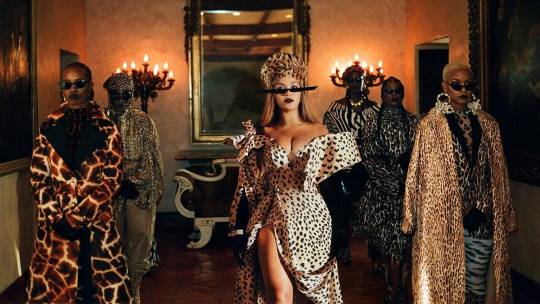
Black is King is an elaborately staged musical directed, written and produced by Beyoncé. Disney
You can find movies and documentaries exploring the Black experience right now on Netflix, Disney Plus and other streaming services.
The CNET staff has compiled a selection of feature films and documentaries for Black History Month 2023, including the wonderful Summer of Soul and Black is King. Netflix, Amazon Prime Video and Hulu all have special collections of streaming movies and shows for Black History Month.
PBS also offers several free video documentary collections, which include smaller chunks of Black history for all ages. The collections include subjects like the Freedom Riders, the 1963 March on Washington and the Rise and Fall of Jim Crow.
Find Black authors and stories for yourself and your children
There are so many great books written by Black authors you should read -- not only during Black History Month but all year round. So, where do we start? Try your local library. Many will have Black History Month collections for both adults and kids.
Libraries will also often have Black History Month book recommendations by age. The San Diego Public Library, the Detroit Public Library and DC Public Library, for example, have programs and collections to browse for adults and children.
Next, try Black booksellers. The Noname Book Club, dedicated to amplifying diverse voices, has compiled a list of Black-owned bookshops across the US. The club also highlights two books a month by writers of color.
Dive deeper into Black history with online resources
The National Archives includes many primary resources from Black history in America. Rowland Sherman/National Archives
You can find remarkable Black history collections on government, educational and media sites. One of the best is the aforementioned BlackPast, which hosts a large collection of primary documents from African American history, dating back to 1724.
The National Archives also hosts a large collection of records, photos, news articles and videos documenting Black heritage in America. The expansive National Museum of African American History & Culture's Black History Month collection is likewise full of unique articles, videos and learning materials.
The New York Times' 1619 Project tracks the history of Black Americans from the first arrival of enslaved people in Virginia. The Pulitzer Center hosts the full issue of The 1619 Project as a PDF file on its 1619 Education site, which also offers reading guides, activity lessons and reporting related to the project.
You can buy The 1619 Project and the children's picture book version -- The 1619 Project: Born on the Water -- as printed books.
#Here Are 9 Ways to Celebrate Black History Month in 2023#Black History Month 2023#Black Lives Matter#Black History#Black History Month#Black History 2023 Celebrations#1619 Project
251 notes
·
View notes
Text
Celebrating Black Queer Icons:
Miss Major Griffin-Gracy
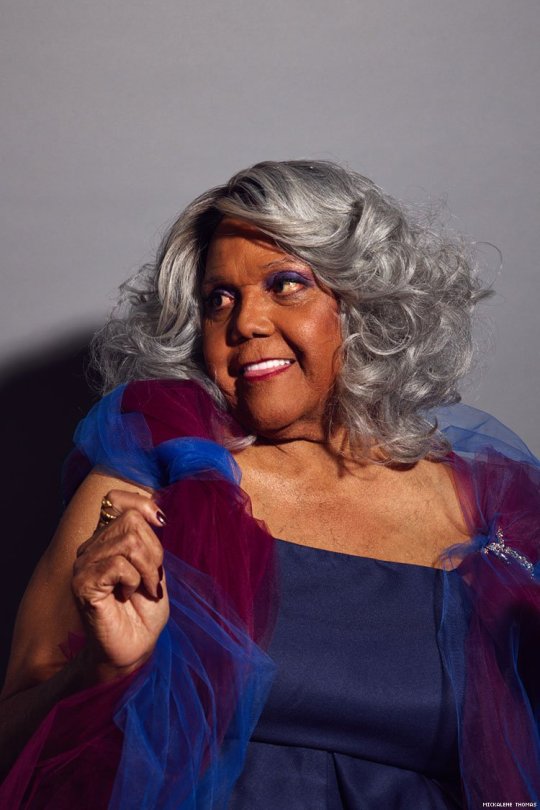
Born on October 25, 1940, Major is a trans women well known as a leader in the broader trans community and an activist, with a particular focus on black and incarcerated trans women. Major grew up in Chicago's South Side and participated in the local drag scene, during her youth. Major described the experiences as glamorous, like going to the Oscars. While she did not have the contemporary language for it, Major has been out as a trans women since the late 1950s. This made her a target of criticism, mistreatment, and violence, even among her queer peers. Majors transition, especially getting her hands on hormones, was largely a black market affair. Given the lack of employment opportunities for black trans women at the time, she largely survived through sex work and other criminalized activities. At some point Major moved to New York City and established herself amongst the cities queer community, despite the prejudice against trans women. She participated in the 1969 Stonewall Uprising. Later, after getting convicted on a burglary charge, Major was imprisoned with men at Clinton Correctional Facility in Dannemora, NY. There she met Frank "Big Black" Smith, a participant in the 1971 Attica Uprising at Attica Correctional Facility. He treated Major, and her identity as a woman, with respect and the two built a friendship. Smith also taught Major a good bit about advocating for herself and other trans women being mistreated by the US Justice System. Major was released from Dannemora in 1974. Major moved to San Diego in 1978 and almost immediately began working on community efforts and participating in grassroots movements. Starting by working at a food bank, she would go on to provide services directly to incarcerated, addicted, and homeless trans women, and would provide additional services after the AIDS epidemic started. In the 1990s Major moved to the San Fransisco Bay Area, where she continued her work, alongside organizations like the Tenderloin AIDS Resource Center. In 2003 Major became the Director of the Transgender Gender Variant Intersex Justice Project, shortly after its founding by attorney and community organizer Alexander L Lee, a trans man. The group works to end human rights abuses in the California Prison System, with a focus on trans, intersex, and gender variant POC. The position has since been passed on to Janetta Johnson, a previously incarcerated trans woman who mentored under Major. She is the focus of the 2015, award winning, documentary Major!. Major has five sons, two biological and three runaways she adopted, after meeting them in a California park. Her oldest son, Christopher was born in 1978, and her youngest, Asiah (rhymes with messiah) in 2021. At 82 years old Miss Major Griffin-Gracy continues to be an active member of her community and an advocate for our rights as trans people.
Haven't settled on which yet, but Willmer "Little Ax" Broadnax or Victor J Mukasa will be next!
#celebrating black queer icons#black history#black history month#black history is queer history#black history is american history#abolish the police#abolish prisons#decriminalize sex work#miss major griffin-gracy#major!#really disappointing to find out she doesnt show up in Popular Tags#stonewall inn#stonewall riots#stonewall uprising#transgender gender variant intersex justice project
335 notes
·
View notes